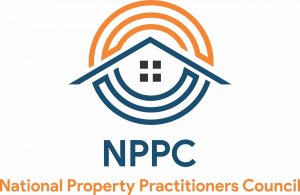The National Property Practitioners Council (NPPC) yesterday called for the real estate sector to be reclassified as a Level 4 industry via a written submission to the proposed Risk Adjusted Strategy for Economic Activity published by the Department of COGTA.
The NPPC is a united council of all major national property industry organisations collectively representing a membership of over 46 000 practitioners in the residential and commercial real estate sector.
Following President Ramaphosa’s announcement made on Thursday 23rd April regarding the implementation of a phased re-opening of the economy, on May 1st the country will enter Level 4 of the Risk Adjusted Economic Phase-in approach which will see some industries become operational once again.
The real estate sector and some related services have not been identified in the permitted goods, services and movement schedule under lockdown Level 4 and are currently categorised as Level 2.
According to the NPPC submission, “the real estate services (including commercial real estate services) are formally classified as professional services by SARS and should therefore be given the same low risk rating as professional and financial services, i.e. they should be Level 4”.
Furthermore, real estate is a multiplier industry that affects many other industries. More than 50% of retail banking assets are generated by real estate and supply chain linkages include conveyancers, valuers, property and facilities managers, tradesmen etc. all of whom are at risk should the industry not be permitted to operate. Many property practitioners are already at high risk of liquidation and destitution as they have been without an income for months” following the closure of the deeds office. The deeds office is proposed to open for selected services in Level 4 however the NPPC has requested clarity on whether this will include property transfers.
The NPPC has also called for residential and commercial relocations to be permitted where rental contracts have expired or deeds transfer of ownership has been effected, provided that such proof is available and a permit has been granted.
Currently the housing market has ground to a stand-still with tenants unable to relocate and honour lease agreements and transfers that were due to take place in limbo. The residential property market is already projected to contract by 40% in 2020 which would result in a total economic loss of R15,7bn to GDP.
Recommendations have also been made by the NPPC as to how the sector could implement virus spread risk mitigation strategies which include, amongst others; the introduction of contact tracing forms for all client meetings, no open homes or show-houses during Level 4 and increased physical distancing and sanitization processes.
Chairperson of the NPPC, Ms Vuyiswa Mutshekwane says “our first priority is to ensure the safety of practitioners and clients and we have proposed various methods that would ensure that. Fortunately, many practitioners already work remotely and can be classified as low-risk however extra care will have to be taken and where possible, activities that usually take place in-person will have to be conducted remotely such as valuations and appraisals etc”.
“We recognise the enormous task of ensuring the health and safety of society while meeting the needs of industry and fully support the Risk Adjusted Strategy for Economic Activity however, government should prioritise the re-opening of those industries that can be classified as low transmission risk and high economic contribution such as the real estate sector.”
FOR MEDIA ENQUIRIES:
Contact:
Ms Vuyiswa Mutshekwane
ceo@saibpp.co.za / info@saibpp.co.za
NPPC Submission Documents:-
nppc-final-submission-on-draft-risk-adjusted-economic-strategy-27042020
nppc-final-submission-template-27042020

